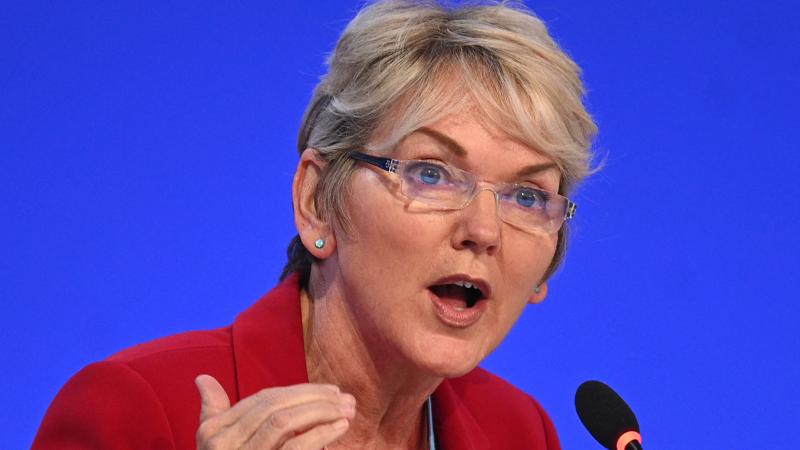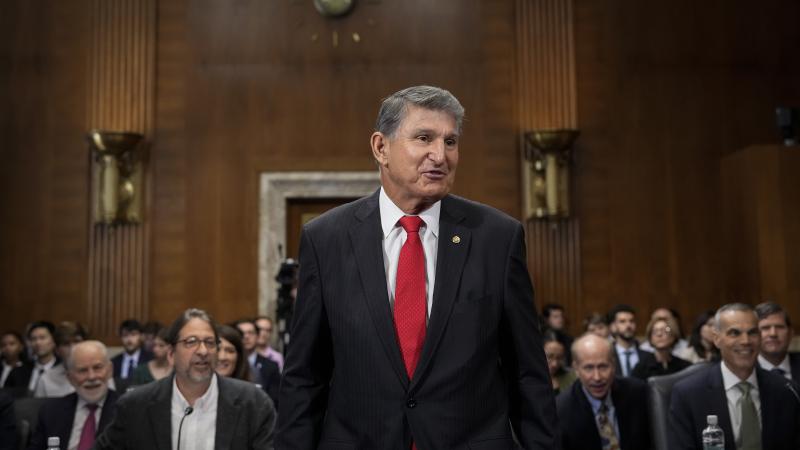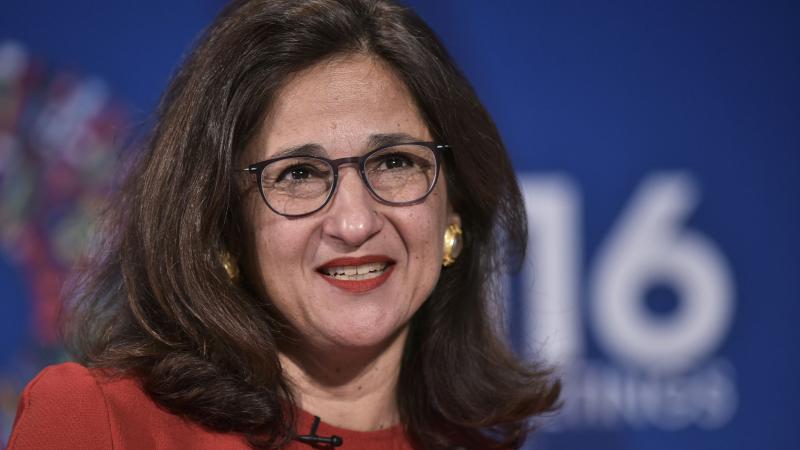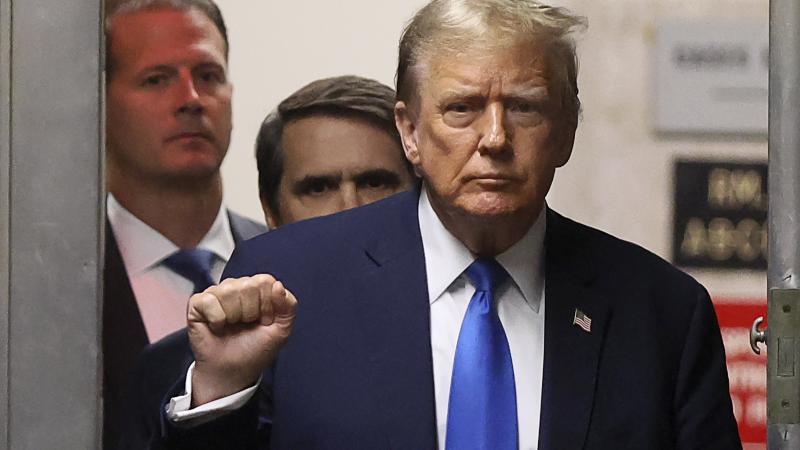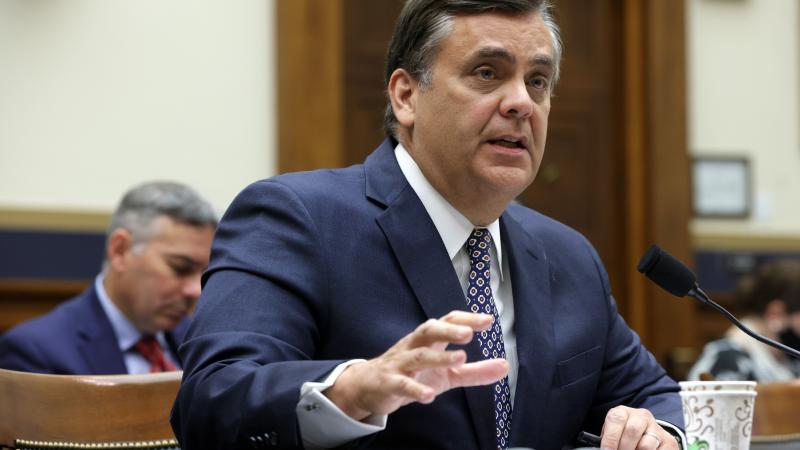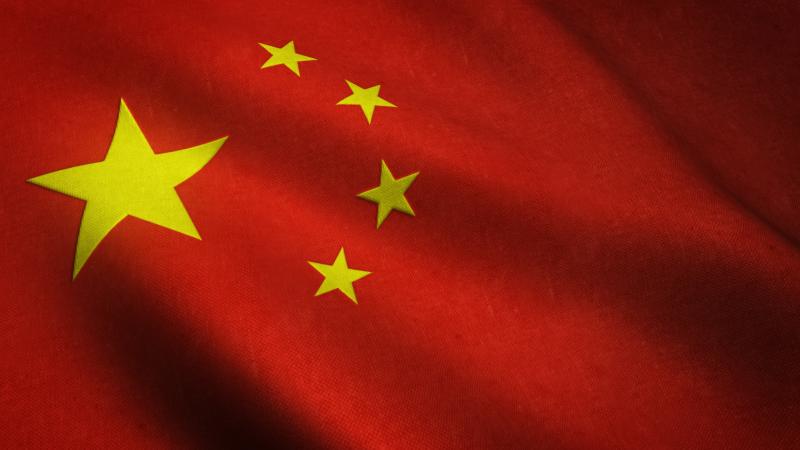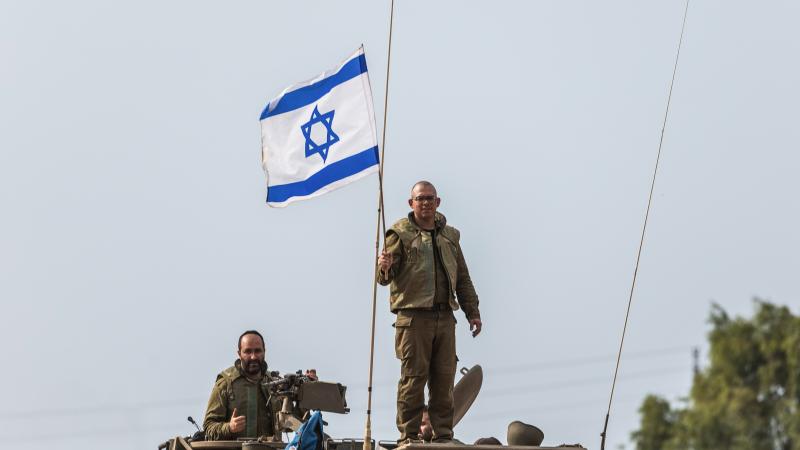Trump confidant Kerik surrenders memos to Jan. 6 panel, vows to ‘eviscerate’ Democrat narrative
Memos show Trump team planned pressure campaign ahead of Jan. 6 to shame governors and state officials into investigating suspected election irregularities.
Then-President Donald Trump's team assembled a 10-day pressure campaign in December 2020 hoping to shame governors and state legislators into officially investigating allegations of Election 2020 irregularities, according to memos newly turned over to Congress by former New York Police Commissioner and Trump confidant Bernard Kerik.
The strategy called for "protests" at governors' mansions and the homes of politicians ranging from secretaries of states to “weak” congressional members in key battleground states, the memos show.
The documents, turned over Friday night under subpoena to the House's Jan. 6 commission, are remarkable in part because they show the primary focus of the Trump team leading up to the Jan. 6 certification of the 2020 vote – an event that turned violent when pro-Trump protesters stormed the Capitol – was to get "support for hearings" to probe allegations of voting irregularities Trump's team had received but not vetted.
Language in the memos even shows that the legal team, led by former New York City Mayor Rudolph Giuliani and assisted by an investigative and research team led by Kerik, was even open to the possibility that there was not enough irregularities to change the outcome of Democratic challenger Joe Biden's win.
One goal was to find "what works to prove the elections numbers are right or wrong," according to a strategy memo that laid out an action plan from Dec. 27, 2020 to Jan. 6, 2021.
"We Have 10 Days To Execute This Plan & Certify President Trump!" the memo declared.
While the team expressed confidence Trump would be declared the winner if the allegations were investigated, the strategy was primarily focused on getting legitimate probes started in Arizona, Georgia, Michigan, Pennsylvania and Wisconsin, the memos show.
The goal was to get states to conduct investigations that gained "access to the voting machines for forensics analyses," review ballot signatures using artificial intelligence and vet paper ballots to "determine valid paper, creases from folding for mailing, ink type, (and) whether ballot was filled out by hand or machine," the memo said.
Democrats leading the Jan. 6 commission repeatedly have said they believed Trump and his team simply created a "big lie" about non-existent voter fraud in a bold effort to overturn legitimate election results showing Biden won.
But Kerik’s lawyer wrote in a cover letter transmitting the documents that the evidence his client turned over provided a far more nuanced portrait of a team that catalogued a long list of unvetted election allegations and simply wanted them formally investigated before the final vote was certified Jan. 6.
"While I appreciate the partisan interests in constantly repeating phrases such as the 'Big Lie' or 'false claims of election fraud,' the reality is that the claims of election fraud were never fully investigated," attorney Timothy Parlatore wrote the committee.
"Without a proper investigation, it is impossible for anyone to state with certainty either that President Biden stole the election through widespread fraud, or that President Trump promoted false claims of election fraud," he also said.
Parlatore also gave a glimpse into potential testimony that Kerik could give to the committee, saying his client did not believe it would be appropriate for Vice President Mike Pence to simply certify an alternate slate of electors and declare Trump the winner in the absence of proven voter fraud.
"To be clear, while it has been reported that some may have pushed a plan for then-Vice President Pence to certify alternate slates and declare Donald Trump the winner on January 6, this is not Mr. Kerik’s understanding,” Parlatore said.
"His goal was to provide sufficient evidence through his investigation or prompt a DOJ investigation specifically to ensure that the election results accurately reflected the will of the people,” Parlatore also said. "His hope for January 6 was for sufficient evidence to be presented which would result in a delay of the election certification to ensure accuracy, not a subversion of the process."
The documents provided Friday night are the first productions from Kerik, but several issues remain unresolved between the potential witness and the committee, led by Democratic Rep. Bennie Thompson of Mississippi.
Kerik's lawyer provided to the lawmakers a log identifying documents he is presently declining to provide because they are covered by attorney-client privilege that Trump must waive.
In addition, Kerik has said he is willing to testify but insists that testimony be public, not behind closed doors.
Parlatore said his team has secured from Trump a "conditional waiver" to release all the documents but that it was "conditioned on Mr. Kerik testifying at a public hearing, a condition that your Committee has thus far refused to accept."
"I will continue to work with your investigative counsel and counsel for President Trump to see if we can reach an agreement that will allow all remaining documents to be disclosed," he also said.
Parlatore said he and his client believe the committee has drawn three conclusions prematurely:
- There was no widespread fraud in the 2020 election;
- The Trump campaign knew that;
- Advisers chose to "knowingly push false claims of election fraud in an effort to subvert the constitutional process and overturn the will of the people."
"The information that Mr. Kerik can provide, presuming we can resolve the privilege issues, will undermine confidence in the first presumption and will eviscerate the second and third presumptions," the lawyer wrote.
The memos Kerik turned over, which were reviewed by Just the News, included a now well known catalog of mostly unvetted allegations in the six most contested battleground states.
Some allegations itemized in the memos have since been debunked, such as voting machines changing votes or fake ballots being hidden under a table at an Atlanta counting station.
But other irregularities flagged in Kerik's memos have been verified in the months since Biden was certified the winner.
For instance, one irregularity flagged in the Kerik memos states that in Wisconsin 226,000 voters skipped vote ID requirements for their absentee ballots in 2020 by declaring themselves "indefinitely confined" by the pandemic when in past elections the number was infinitely smaller.
The vote difference between Biden and Trump in the state was just 20,000 votes.
"Indefinitely Confined has always been strictly administered, and was designed for nursing homes and home confinement," the memo stated.
The Wisconsin Supreme Court subsequently has ruled election regulators in the state wrongly gave permission to large numbers of voters to declare themselves "indefinitely confined" when they did not meet the legal definition.
Likewise, the memos flagged thousands of ballots in Arizona’s largest county that appeared suspicious. A subsequent audit by the Arizona Senate concluded more than 50,000 ballots in Maricopa County were suspicious and referred them for further investigation by the state attorney general.

